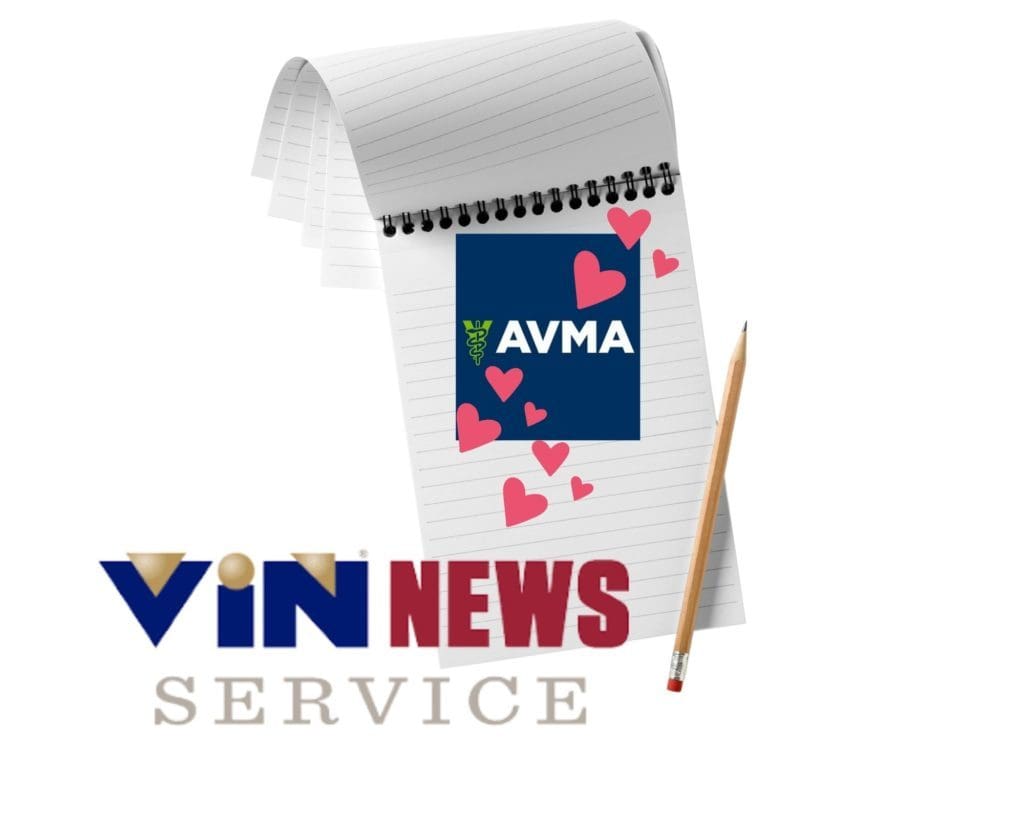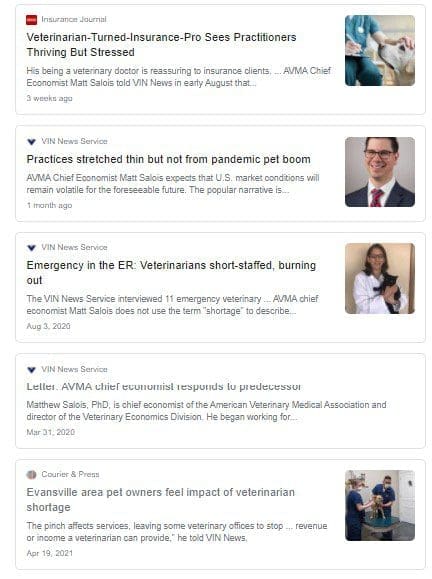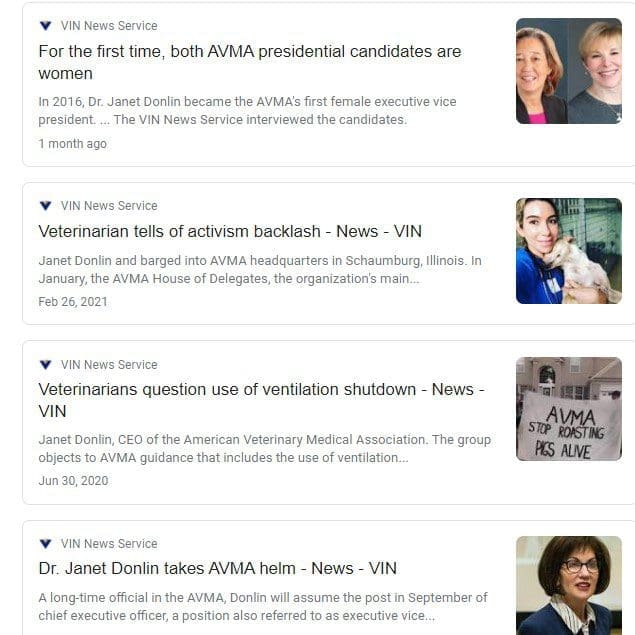VIN News and the AVMA: A Cozy Relationship
The absence of reliable, credible information for pet owners about companion animals is a frequent obstacle for the veterinary profession, in part because, as most veterinarians explain it, they say they feel like they are competing with “Dr. Google.” So, it begs the question: Why would the American Veterinary Medical Association have a policy of never speaking with reporters on any matter of substance? The AVMA’s leaders seem to be missing in action lately, even as the industry it serves is enduring unprecedented challenges: staffing shortages, depression, suicide, student debt far-outpacing inflation, and more. In fact, it was still-forthcoming reporting focused in part on reduced hours and closures of veterinary emergency hospitals on the east coast that led to this story. Lately, it seems that the AVMA asks that reporters communicate only through its press shop via email. But there is one apparent exception: VIN News.
VIN News publisher Paul Pion told TCR Sunday evening in a brief telephone conversation that the organization has never issued written policies to its reporters about its newsroom practices and, thus, there is no document he would be able to point us to or publish on a public website that might explain AVMA’s predisposition to make VIN News its most favored outlet.
Most reputable news organizations publish editorial policies on their websites and in cases in which news organizations, for whatever reason, do not publish their policies, they normally make written policies available on request. This was my experience when I reported on policies and practices of major news organizations for the Columbia Journalism Review (CJR), which in the media world is regarded as an authority on press ethics and criticism.
VIN News is funded by revenue generated by membership fees from VIN, the Veterinary Information Network, a network for veterinarians with message boards where veterinarians can vent about crazy clients, colleagues, bosses, etc. And, the only non-veterinarians on the planet who are granted access to this magical planet of veterinarians-only inside baseball are VIN News reporters–and, you guessed it, the AVMA’s leaders–people like the organization’s chief economist Matt Salois, who spent three weeks sending us emails telling us he was “traveling and in all-day meetings.” We were hoping to have a series of conversations with him about the critical challenges now facing the profession so that we could convey his views – and perhaps whatever data he is collecting – to our audience of veterinarians, industry leaders, and members of the general public.
[*Immediately following our initial publication of this article, a reader contacted TCR: “Characterizing VIN as being a vent board is inaccurate. It is, among many other arms, a discussion board for case and research discussion.” It was not TCR’s intention to characterize VIN as a “vent board” nor was it the intention of this publication to suggest that veterinarians are “whiny, gossipy children” (the reader’s words). We also regret that we did not originally include VIN’s own description of itself: “The VIN consultant team — 271 of the most dedicated and talented leaders in veterinary medicine — monitor and facilitate discussions that teach all VINners to be better clinicians while helping you manage your cases.” Of course, it would have been most helpful to get that language in a conversation with Dr. Pion, who declined our repeated requests for a conversation.*]
An Unusual Policy: After-the-Fact Quote Approval Required, Not Forbidden
What we do know is that VIN News has one unusual policy, written or not, that readers should know about. It gives anyone it interviews the ability to have whatever they are about to be quoted on submitted to them for approval before a story is published. To those who may have been misquoted or have had a quote taken out of context, that may seem reasonable. But any professional journalist will tell you that this undermines good reporting by giving people a chance to rethink something they might have said in a fit of candor. (Remember the old Washington rule: a gaffe in Washington is when someone tells the truth!). Or in a situation in which, let’s say, a company has been hit with a product recall, it may allow the multiple people involved to “get their stories straight” or to have the PR people craft a good dodge. At a minimum, it produces spin and corporate-speak instead of spontaneity, or it delays stories while subjects ponder whether to approve a quote or how to recraft it.
Yes, it’s a complicated issue, and in some cases, some reporters have to agree to quote approval as a condition of getting an interview. But most reputable news organizations – The Times, Washington Post, Economist, Wall Street Journal, The New Yorker — absolutely forbid it, as does TCR (and, yes, we proudly publish our policies, including the policy about after-the-fact quote approval).
However, Dr. Pion refused to have any kind of on-the-record discussion to discuss these issues, though he did acknowledge the existence of this policy and that it governed all quotes. Note: For those who want a better understanding–at least from the perspective of the journalism profession–of after-the-fact quote approval, the best primer on this topic is The Times’s former executive editor Jill Abramson’s staff memo issued in September 2012.
We asked him repeatedly for a discussion with his reporters – how the quote approval policy impacted their stories, did it delay the stories, have there been stories in which after-the-fact quote approval has changed the meaning substantively – and he declined.
Why Should Veterinarians and Others Care?
If the only place where the leaders of your professional association and their staff experts paid to address all the critical issues facing the profession will discuss these issues is with a “news service” that assures them of this kind of carefully scripted platform, it becomes that much harder for policymakers, animal health professionals, students, fellow veterinarians, and those you serve to get credible, accountable information. And if all other reporters have to submit questions only to the AVMA PR office, which can then craft the organization’s official answers, this only compounds the problem.
Both Kremlin-like practices allow AVMA officials to avoid the test of putting their views to people who will ask them straight questions and report what they actually say, not what they or the organization wish, on reflection, that they had said.




